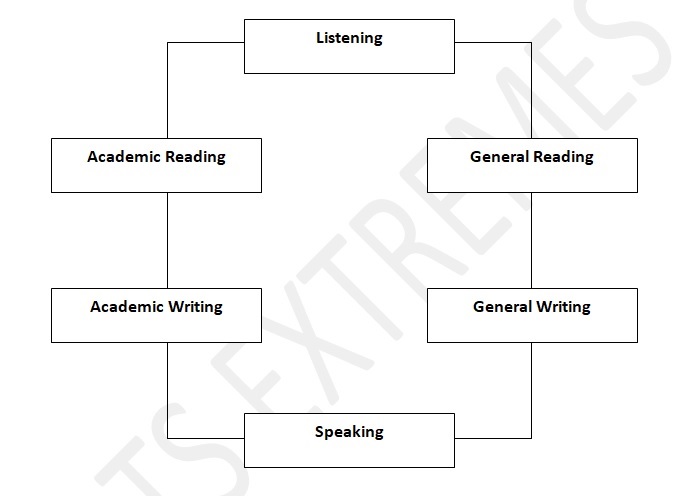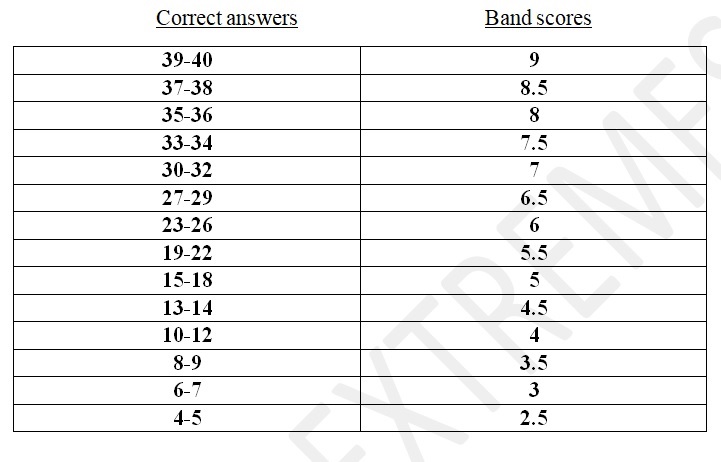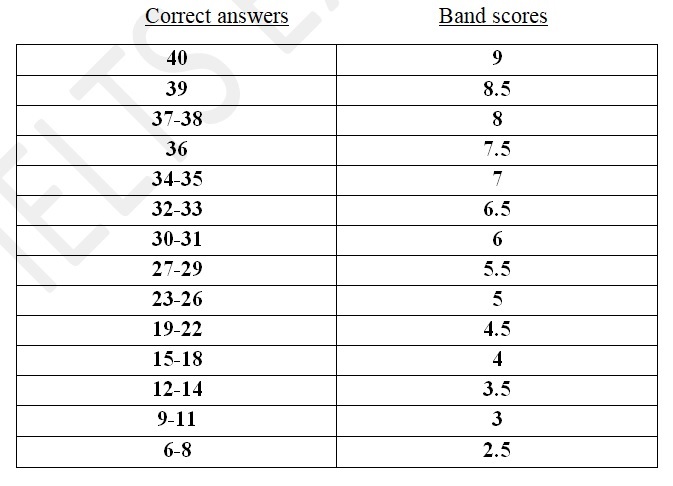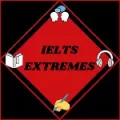International English Language Testing System (IELTS)
IELTS Academic / IELTS General Training

Listening
Time: approximately 30 minutes (+ 10 minutes to transfer your answers).
Question: Total 40 question
Question Types: Form completion, multiple choice, matching, map/plan/ diagram labelling, note completion, flow-chart completion table completion, summery completion(NO MORE THAN TWO WORDS AND/OR A NUMBER), sentence completion(NO MORE THAN ONE WORD AND/OR A NUMBER), short answer question(NO MORE THAN THREE WORDS AND/OR A NUMBER).
The listening test is in 4 parts.
Part 1:- Conversation between two people about everyday social context (E.g. enquiring about a trip/ holiday).
Part 2:- A monologue (one speaker) about everyday social context (E.g. Information about recent changes in a public place)
Part 3:- Conversation between up to four people about academic or training topics (E.g. A tutor discussing with students about an assignment).
Part 4:- A monologue (one speaker) about an academic subject (a university lecture).
Each section is heard only once.
What will be assessed?
- Understanding of main ideas.
- Understanding of specific factual information.
- Recognising opinions, attitude and purpose of speaker.
- Following the development of an argument.
Marking
Each question carries 1 mark. Total 40 marks 9.

Reading Academic
Time:-
60 minutes (no extra time to transfer answers)
Questions:-
40 question
Question Types:-
Multiple choice, identifying information (True/ False/ Not Given), Identifying a writer’s views/claims (Yes/ No/ Not Given), matching information, matching headings, matching features, matching sentence endings, sentence completion, summary completion, note completion, table completion, flow-chart completion, diagram label completion, short-answer questions.
The reading test is in 3 sections.
The total text length is 2150-2750 words.
About academic reading:-
Each section has a long text. Texts are taken from books, journals, magazines, and newspapers. Texts are on academic topics of general interest. It ranges from descriptive and factual to the discursive and analytical. Texts may have non-verbal content such as diagrams, graphs, or illustrations. Technical terms are explained on the bottom of the page.
Skills assessed
- Reading for gist
- Reading for main ideas
- Reading for detail
- Understanding inference and implied meaning
- Recognising writer’s opinion, attitudes and purpose
Following the development of the argument
Marking:-
Each question carries one mark. Total 40 marks

General Training Reading
Time:-
60 minutes (no extra time to transfer answers)
Questions:-
40 question
About General Training Reading
Section 1 consists of two to three short factual texts, one of which many contain 6-8 short texts. Topics are related to everyday life in an English-Speaking country.
Section 2 contains two short factual texts focusing on work related issues (applying for a job, company policies, pay and conditions, workplace facilities, staff development and training). Section 3 consists of one longer and complex text on a topic of general interest.
Text is taken from notices, advertisements, company handbooks, official documents, books, magazines, and newspapers.
Skills assessed
- Reading for gist
- Reading for main ideas
- Reading for detail
- Understanding inference and implied meaning
- Recognising writer’s opinion, attitudes and purpose
- Following the development of the argument
Marking:-
Each question carries one mark. Total 40 marks.

Writing Academic
Time:-
60 minutes
Number of Tasks:- 2
Task 1 Task 2
Task 1
Table, Chart, Diagram, Process, Graph , or Map is provided. You have to describe, summarize, or explain the information in your own words. You may be asked to describe and explain data, describe stages of process, how something works or describe an object or event.
Write not less than 150 words.
Skills Assessed
- Content
- The organization of ideas
- The accuracy and range of vocabulary and grammar.
Your ability to organize, present, compare data, describe the stages of a process and procedure, describe an object or event or series of events and explain how something works will be assessed.
Task 2
Write an essay in response to point of view, argument or problem.
Write at least 250 words with an example.
Skills Assessed
You are assessed on your ability to present a solution to a problem, to present and justify an opinion, to compare and contrast evidences, opinions and implications, to evaluate and challenge ideas, evidence or an argument.
Assessment Criteria
- Task achievement/ response
- Coherence and cohesion
- Lexical Resources
- Grammatical range and accuracy
Task 2 contributes twice marks than task 1.
Writing General Training
Time:-
60 minutes
Number of Tasks:- 2
Task 1 Task 2
Task 1
A situation will be presented and you have to write a letter requesting information or explaining the situation. The letter may be Formal, semi-formal/ neutral, or informal in style
Write not less than 150 words.
Skills assessed
You are assessed on your ability to engage in personal correspondence in order to provide general factual information, express needs, wants, likes and dislikes, express opinions, views or complaints.
Task 2
Write an essay in response to point of view, argument or problem. The essay can be slightly more personal in style than an academic essay.
Write at least 250 words with an example
Skills assessed
You are assessed on your ability to provide general factual information, to outline a problem and present a solution, to present and justify opinion, to evaluate and challenge ideas, evidence or an argument.
Assessment Criteria
- Task achievement/ response
- Coherence and cohesion
- Lexical Resources
- Grammatical range and accuracy
Task 2 contributes twice marks than task 1.
Speaking
Timing:-
11 to 14 minutes
Test parts:-
3 parts
Part 1:- Introduction (4-5 minutes)
Examiner will introduce him/herself and ask you to introduce yourself. The examiner will ask you general question such as on home family, work, study or interests.
Part 2:- Individual (3-4 minutes)
Cue card: the examiner gives you a task card which asks you to talk about a particular topic and which includes points you should cover in your talk. You will be given one minute to prepare. You should talk on the topic for 2 minutes.
Part 3:- Two-way discussion (4-5 minutes)
The examiner asks you more questions related to Part 2. More abstract issue and ideas are discussed. Cross questioning can be done.
Skills Assessed
- Your ability to communicate opinions and information on everyday topics, common experiences and situations by asking a range of questions.
- The ability to speak at length on a given topic using appropriate language and organising ideas coherently.
- The ability to express and justify opinions and to analyse, discuss and speculate about issues.
Marking
- Fluency and Coherence
- Lexical Resources
- Grammatical range and accuracy
- Pronunciation

